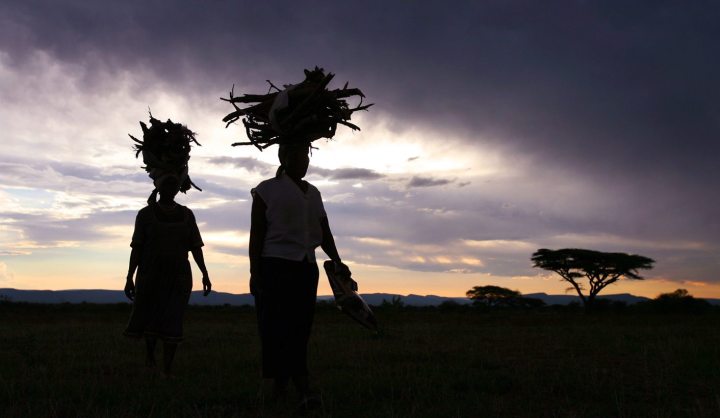Maverick Life, South Africa
Health-E News: Feeling the pain of South Africa’s rural cancer crisis

Two types of conditions can spell death in South Africa’s rural areas, and I have just diagnosed a patient with one of them – cancer. By the time the patient goes through the rural referral labyrinth to get chemotherapy, it will probably be too late, writes ANONYMOUS* for HEALTH-E NEWS.
This article is written by a rural clinician whose identity has been withheld to protect him from possible victimisation.
The dreaded diagnosis. As I pick up the file, my first instinct is to drop it again. It’s the instinct you get when you’re trying to protect yourself from hard situations. It’s your morality that keeps the file glued to your hand, and you tell yourself to “manup” and do this as best you can.
I call for an interpreter because this requires knowledge of IsiZulu beyond my capabilities, and this needs a proper explanation. “Sir, I have some bad news…” I start as a fleeting memory of the “breaking bad news” simulation in medical school flies momentarily through my thoughts.
“The result of your biopsy is back. It unfortunately says that you have cancer.”
Further explanation is tricky. People with limited to no education have little use for information on the type of cancer and how rare it is. As doctors, we sometimes limit the information we give patients to the information they can use such as which organs are affected and what happens next.
What happens next is where the problem starts.
There are two serious medical problems you want to avoid when living in rural areas.
First, you want to avoid any life-threatening trauma that leaves you with one or two hours’ breathing time before you need a specialist surgery to lengthen your stay here on earth.
Out in the bush, this is a bad situation to be in because there just aren’t enough ambulances to guarantee you’ll get to our referral facility – 220km away – fast enough. Ambulances are constantly away, transferring or picking up patients, and this leaves none for acute emergencies.
This reality leaves you as a doctor an awkward position: You know what a patient needs to live but are unable to provide it.
If your patient has an acute emergency but can hang on until the night shift ambulances take over at 19:00, then he or she should be okay.
The second serious problem to avoid is the condition with which I have just diagnosed my patient. Cancer is a serious, fatal disease that can take your life in a matter of weeks or months, but it doesn’t qualify you as an acute emergency.
My heart always goes out to cancer patients, because I know what lies ahead.
Step 1: I phone to discuss the patient’s condition with the oncologist 400km away. Predictably, the specialist gives me a list of tests for the patient that must be completed before they will see the patient, including a computerised tomography (CT) scan. CT scans are used to find out where in the body the cancer is, where it may have spread and to decide the most appropriate treatment.
Step 2: I book a scan. Many rural practitioners will know the pain this causes. Booking a CT scan at our referral hospital involves trying to get through to our referral hospital’s switchboard and then reach the appropriate doctor in between being transferred to different people and periodically having your call dropped. This process alone has led me to seriously contemplate whether to begin field-testing my idea for antidepressants administered intravenously on myself.
Our referral facility has one CT machine serving more than 20 referring hospitals. The undesirable but inevitable result of this is that the scan can only be done in a month’s time.
While writing the date for my patient’s scan in his file, I feel like I can already see the cancer growing as the patient sits around for the next month just waiting. The cancer will most likely be incurable by the time he begins receiving the chemotherapy that he so desperately needs for a chance at staying alive.
Nothing I can do. I hate that feeling. For rural cancer patients, treatment is often a hike and a bus ride away. It can be a gruelling trek for patients already feeling sick. I sometimes wonder whether it wouldn’t be better for a patient to get palliative treatment and spend his last months at home in peace instead of spending days on buses undergoing painful procedures that may be futile.
But I can’t tell the patient that I am giving up. Not at this stage. I have to remain hopeful. Maybe this time he’ll get treatment in the nick of time.
The treatment plan I give the patient gives him a glimmer of hope. It’s something for him to focus on. I leave the patient with this hope and it gives me some consolation as well, even though the reality of what he faces is far less convincing. My heart bleeds for him, and because it does, I don’t tell him about every single negative challenge that our system poses. He has enough to deal with for today.
After he leaves, I have to deal with all that I’ve just felt, but there are 20 other patients in the waiting room doing exactly that – waiting. I have to try to get the emotions out of my system or, at least, suppress them for a while.
I pick up the next file and hope it’s a straightforward case. Just before I call the new patient in, I reflect on the last hour and realise how cancer exposes not only the weaknesses in our bodies but also our health system and maybe our doctors. DM
Photo: Two women carry firewood as a thunderstorm looms overhead near Moshana village in South Africa’s North West Province, Thursday 22 December 2005. EPA/JON HRUSA.















 Become an Insider
Become an Insider